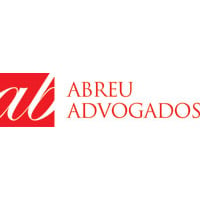

Partner and head of international arbitration for continental Europe | Quinn Emanuel Urquhart & Sullivan






Philippe Pinsolle
Partner and head of international arbitration for continental Europe | Quinn Emanuel Urquhart & Sullivan
Number of years practice: 25
Principal practice areas: International arbitration
Languages spoken: English, French, Spanish
What is the geographical focus of your practice in Africa?
Pan-African.
Please describe the most important matters you have worked on in the African market in the last two years, including your role and the significance of the matter (if any) to the development of business and law.
I represented Exxon and Petronas against Chad in a US$77bn ICC arbitration arising from a tax stabilisation agreement. The matter is confidential but gave rise to court proceedings in Chad. The case was settled after a favourable award on jurisdiction. I also represented Sonatrach against Saipem in another ICC arbitration where Saipem was claiming in excess of €500m. We counterclaimed and the tribunal found in favour of Sonatrach, deciding that Saipem had committed gross negligence and awarded €135m to Sonatrach. The case was reported in a press release issued by Saipem.
What differentiates your practice from that of other private practice lawyers?
I am a leading counsel in international arbitration, recognised as such by my peers. I am ranked in band one in all rankings. Half of Africa is civil law and I am a civil law expert.
Why has Africa been a particularly strong focus for you?
For historical reasons; I have worked for Elf and then Total and Sonatrach for more than 20 years. Sonatrach is the biggest oil company in Africa and Total is heavily invested in Africa.
What changes have you seen in the appetite for Africa-based ventures and investments over the last five years?
The price of commodities drives investment in Africa, and there is a lot of pressure from Chinese companies to invest even more in Africa than they have already. Many Western companies are reshaping their business there due to compliance issues, this is clearly a market in transition.
Are there any aspects of the African legal market that you would like to see change?
Africa is full of very talented lawyers but they operate primarily as solo practitioners. We would welcome the emergence of global pan-African law firms composed of local talents.
What megatrends do you think will shape the African market over the coming five years? How (if at all) will these trends affect your practice?
Local governments can accept it for a while but will eventually retry to regain control over their natural resources. This will create tension. In parallel, foreign anti-corruption agencies, such as the DOJ, will one day focus on Africa even more so than today and it will be a bloodbath.